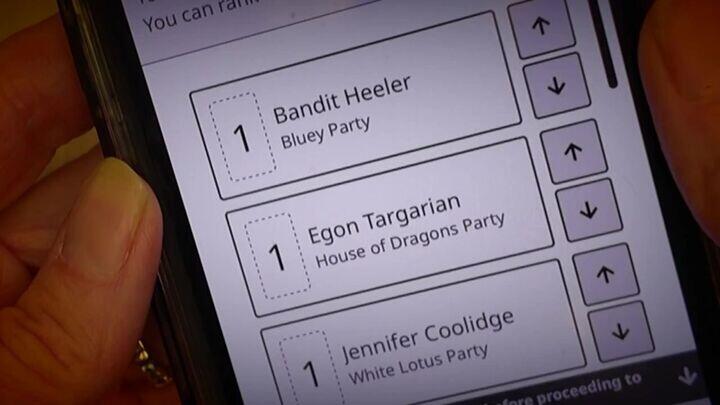New York Entrepreneur Bets $20M on Smartphone Voting Technology

UPDATE: A groundbreaking initiative is underway as New York entrepreneur Bradley Tusk invests $20 million of his own money to revolutionize U.S. voting by enabling citizens to cast ballots via smartphones. Tusk, founder of the Mobile Voting Project, believes this technology could dramatically increase voter turnout and prevent fringe candidates from gaining office.
In an exclusive interview with CBS News New York at his bookstore on the Lower East Side, Tusk emphasized the urgency of his mission. “We have spent the last four years developing the most secure voting technology we have ever had,” he stated. Tusk’s initiative comes as a direct response to the growing concern over voter accessibility and engagement in the electoral process.
The app, currently in its beta phase, has undergone testing in various smaller elections across the country. Tusk showcased a mock voting experience, demonstrating features such as multifactor authentication and biometric screening, which he claims will provide enhanced security. “The ballot’s encrypted, anonymized, and you get a tracking code, like for a FedEx package,” Tusk explained, aiming to assure voters of the app’s integrity.
However, skepticism looms over the concept of mobile voting. Critics worry about security vulnerabilities, especially given the rise of cyber threats. Susan Greenhalgh, a senior advisor on election security, warned, “All voting systems can be vulnerable to manipulation,” pointing out that online systems could be targeted by cybercriminals worldwide.
The initiative has already garnered interest among specific groups, including military personnel and individuals with disabilities. Michael Matos, a U.S. Coast Guard veteran, shared his frustrations with traditional voting methods, citing difficulties in casting his ballot while deployed overseas. “I wanted to contribute to my community while serving the country. But in that time, I felt like my voice was extinguished,” he lamented.
As part of his outreach, Tusk has highlighted that mobile voting could particularly benefit underrepresented populations, including Gen Z voters. “The mobile phone is really key to people that are visually impaired,” said Cheryl Pemberton-Graves, chief volunteer officer for Lighthouse Guild, underscoring the potential for broader participation in democracy.
Currently, mobile voting has been trialed in seven states, including a successful run in West Virginia, where it was used by deployed military members. “It took them about 10 minutes to request their ballot, authenticate on the app, vote their ballot and then return it,” said Matthew Gallagher, program director for the West Virginia Secretary of State’s Office. Despite the success, Gallagher reiterated that in-person voting remains the “gold standard.”
Tusk envisions a future where every eligible voter can easily access mobile voting, akin to sending a text. However, he acknowledges the challenges ahead, particularly the need for legislative changes in states like New York. “So far, the answer is no. You probably need a change in state legislation,” he stated regarding the app’s implementation in the city.
Public sentiment is divided. Advocates argue that mobile voting could transform the electoral landscape, while detractors cite security concerns. “If he had a way to prevent any sort of corruption online, he should be selling that product to the Department of Defense,” Greenhalgh retorted, illustrating the magnitude of skepticism surrounding the technology.
As Tusk pushes for acceptance, he reflects on the historical struggles for voting rights, asserting that change is often met with resistance. “The status quo didn’t want to give them any of those things,” he said, suggesting that enough public demand could ultimately shift the paradigm of voting in America.
Stay tuned for further updates as this transformative project unfolds. The future of voting may very well depend on how quickly and securely we can adapt to new technology.






